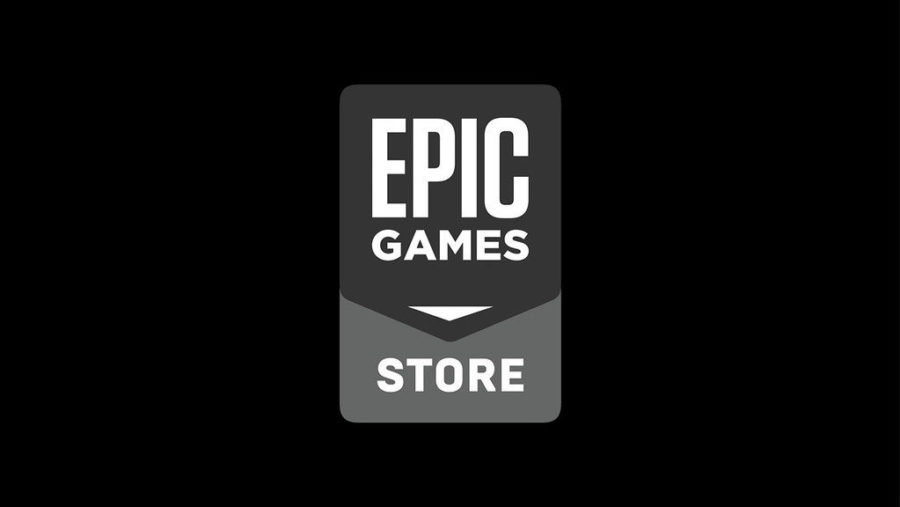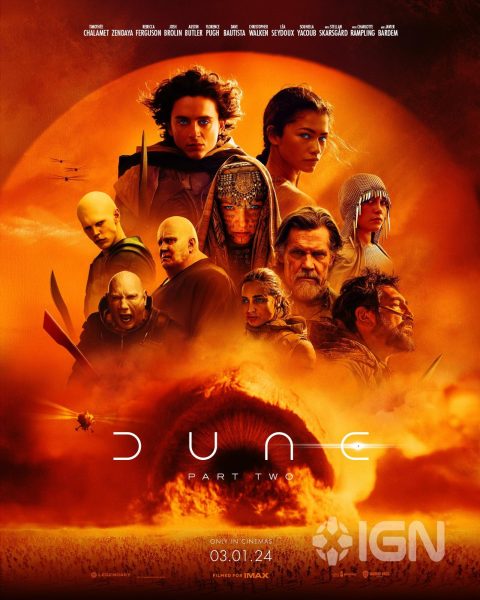Johnson: Digital distributors should have higher standards
Photo courtesy of Wikimedia Commons
“Borderlands 3,” released on the Epic Games Store, sparked a debate over the standards for digital distributors.
October 9, 2019
Sept. 13 marked the day the long awaited predecessor to game series “Borderlands” by 2K and Gearbox Software was finally released to the public.
First revealed back in June at the Microsoft Conference during Electronic Entertainment Expo (E3) 2019, one of the largest gaming expos in the world, it shook the gaming community to its core. Gamers and fans of the series all over the globe were waiting in tense anticipation, but those who are a part of the larger gaming communities reacted with a massive wave of backlash.
Along with the initial reveal of the game itself, it was revealed 2K and Gearbox would be joining an already long stream of developers opting for exclusivity on Epic’s own game launcher and store, the Epic Games Store.
The PC gaming industry has been dominated for over 15 years by a digital gaming distribution platform developed by Valve, called Steam. Over the years, there have been many companies following the footsteps of this monstrous platform by creating their own launchers. Companies like EA with Origin, Ubisoft with UPlay and Blizzard’s own Battle.net launcher tried to break into the market and feed off the success of Valve’s Steam, but could never come anywhere close to its popularity.
Now comes Epic and the Epic Games Store, which first gained massive popularity with the phenomena that was Fortnite Battle Royale’s incredible run of popularity over the past two years. This single trend led by streamers and gaming content creators all over the community caused the use of the Epic Games Store to absolutely sky rocket from being nearly invisible to being one of the top PC gaming stores out there in a matter of months.
The success from this caused Epic to start providing exclusive deals to developers like 2K and Gearbox to start selling their game on the platform, the first larger and more controversial exclusive being “Metro: Exodus.”
So why has this caused an uproar in the PC gaming community? Well, one of the first issues a lot of people point out is the underdevelopment of the Epic Games Launcher itself. Unlike its biggest competitor, the Epic Games Store lacks in most aspects, such as quality of life-like features, social and community features, individual progression features and support for multiple platforms like virtual reality.
With a lack of everything from achievements, social groups besides a friend list, and even user reviews, the Epic Games Launcher is barren besides its very limited selection of games. Unfortunately, it’s those games that are forcing people to continue to use an unfinished program.
That’s not even scratching the surface of controversy surrounding Epic Games exclusives. When “Metro: Exodus” was announced for exclusivity, it caused an uproar not only because of the idea of itself, but also because of the timing behind it.
4A Games first announced “Metro: Exodus” back in July 2017 and started taking pre-orders for the game a year later in mid 2018 on multiple distribution platforms including Steam. But, only mere months before the game’s official release on Feb. 15, 2019, a statement made by 4A Games announced the game will now only be sold on the Epic Games Store.
This immediately caused confusion from those who had already pre-ordered the game on other platforms. Because of this, 4A had to release a second announcement stating any pre-orders already made for the game would be kept and completed, but any coming afterward would have to come from the Epic Games Store.
Soon after the switch happened, instead of removing the game completely from their store, Steam released a special message as part of the store page itself, stating that they believe the sudden change of sales decision was unfair to their customers and that the very fleeting amount of time given to them to react to the decision was equally unfair.
So, even with all of this going against Epic and their distribution platform, why are developers time and time again still allowing exclusivity? Very soon after the mess of “Metro: Exodus,” Ubisoft’s own “The Division 2” was announced to be an exclusive in the same right, rather than be available in the Uplay Store that Ubisoft itself own.
With all of these negatives, the PC label must not support what Epic is doing and are calling for improvements before they give their business to them, right? Unfortunately, that’s not the case.
Even with the backlash the Borderlands 3 release received from the PC community, 2K and Gearbox released a statement about the overwhelming success of the game’s sales. In an official statement made on Sept. 23, 2K said, “Borderlands 3 has sold over five million copies in the first five days, making it the fastest selling title in 2K’s history, as well as the highest selling title in the label over a five-day window.”
Not only that, but the game’s success has also allowed the franchise to generate over $1 billion in Net Bookings, becoming the second franchise in 2K’s history to achieve this milestone, the first being the “NBA 2K” franchise. Sales in all platforms exceeded expectations, including PC sales through the Epic Games Store, which were said to be “incredibly strong.”
So of course, there are things that cause companies and parts of the gaming community to be drawn to the Epic Games Store. The main thing being the much lower sales split that Epic offers to developers, which is an 88 percent cut going to the developers rather than Steam’s 70 percent cut.
This argument was one that started very soon after the beginning of the Epic Games Stores exclusives and is still something that is discussed today, and many developers are very passionately on the side of Epic when it comes to providing larger sales cuts.
Many say larger portions of profit going to the developers themselves means more resources can be turned into making bigger and better games in the future. This is very true, but is that enough to justify exploiting and herding their customer base to a whole different medium of purchasing their game? The answer to that is still not agreed on.
So, what is the line that must be drawn for publishers to know what is required of a digital distributor in order for their customers to be able to safely and comfortably purchase and play the games they want and also actually enjoy using the launcher?
Just like a customer walking into a grocery store, there is always a list of expectations one has regarding the store. There are obvious things the store must have in order for you to feel comfortable shopping, such as the availability of shopping carts; a wide selection of products so that you know you’ll always find what you need; up-to-date registers and software that can be trusted with using your information; and competent employees that know their job and do it well.
Why shouldn’t these same expectations be something that digital distributors are expected to meet in order to have business? Why is the label plagued with distribution software that is only created to give an easy way to bar exclusive titles? All they do is force those who use them to constantly jump from launcher to launcher, website to website and publisher to publisher, just to find a specific game they are interested in. Why do consumers put up with it?
They shouldn’t have to put up with it, but they do because for some reason buying video games and other digital software is considered different than shopping in local markets. Regardless, digital software distribution should have to meet the same standards that any other store or business must meet, especially in a generation where online shopping is becoming more and more relevant.

















